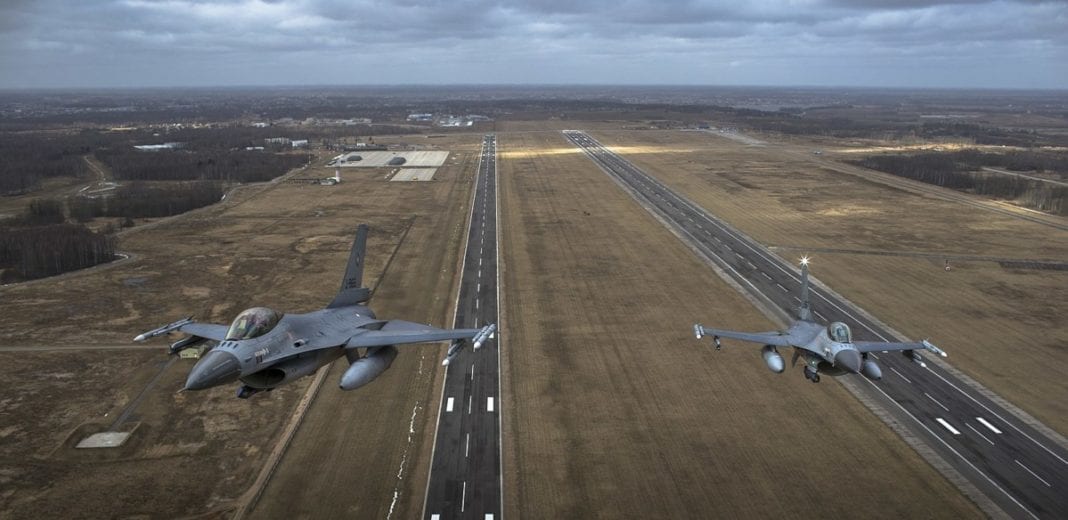In 2015, a Dutch F-16 plane bombed a car bomb factory controlled by IS in Iraq. As a result of this attack, seventy residents were killed, according to sources who spoke with NOS and NRC.
During the bombing, an entire neighbourhood in Hawija was wiped out, making it one of the bloodiest attacks perpetrated by the western coalition against IS. This is the first time that it has become clear that the Netherlands did bomb places in Syria and Iraq, and that the number of people killed became known.
Seventy people died
The Pentagon has confirmed that on the night of 3rd June 2015, seventy citizens lost their lives. Eyewitnesses claim that a lot more people died, hundreds were wounded, and 23 children were wounded for sure. For security reasons, the Dutch Ministry of Defence does not want to confirm that the Netherlands was involved in this bombardment.
Refugee families were known to be in the area
It is unclear why this Dutch airstrike went so wrong. Investigations by the NRC and NOS in the area last summer revealed that it was known that refugee families were staying in the area around the car bomb factory. However, it was still in the hands of IS. An informant that NRC and NOS spoke with said that he had informed the Iraqi army about the presence of refugee families in the area. We don’t know if this information was passed on to the Netherlands.
How the airstrikes worked
Dutch F-16s were deployed in Iraq and Syria between 2014 and 2016, and again in 2018, as part of a large international coalition to fight IS. The location of the airstrikes would have been decided at the international headquarters of the operation in Baghdad. The available information would again have been reviewed at a second headquarters in Qatar, and then the green light would have been given. A Dutch defence lawyer could have examined the evidence and stopped the attack; so could the pilot of the plane, if they thought the risk of civilian casualties was too great.
Ammunitions in the factory may have caused second explosion
The Pentagon has said that the reason the attack went out of control was the huge amount of ammunition and flammable materials stored at the factory. According to US Air Force General John Hesterman at a press conference after the bombing, this caused a second explosion to take place. He said the “targeting process” was very careful, and a relatively small bomb was used. He did not mention the presence of refugees in the area.
House of Representatives left in the dark
The Dutch House of Representatives was not made aware of the seriousness of the attack. They were only told last year that it was very likely that there were civilian casualties at the car bomb factory airstrike. They specifically asked for more information, and were not given it. They did not know that this car bomb factory airstrike was the Hawija airstrike, that refugees were killed, or that dozens of people died.
Met precisiebombardementen van Nederland blijken nu zeventig burgers in Irak, waaronder kinderen, te zijn omgekomen. Een complete wijk Hawija is verwoest. En ons is helemaal niks verteld. Iedere keer hebben we ernaar gevraagd. Nooit antwoord gekregen.https://t.co/GvNkwtMEzB
— Sadet Karabulut (@SadetKarabulut) October 18, 2019
The Pentagon decided that there was no need to launch an investigation into the airstrike, as did the Dutch Public Prosecutor (the latter had not conducted any investigations in Iraq).
Compensation not being paid
NOS and NRC spoke with victims’ families in Hawija, and found that compensation was being paid out very slowly, or not at all. According to Minister of Defense Bijleveld, surviving relatives who have lost family members during the Dutch airstrike can make themselves known and expect compensation. “Initially, Iraqi citizens must end up with the Iraqi authorities,” she said in the Lower House in May.
In addition, according to the minister, there is a possibility that the Netherlands will pay damages itself. “Should a Dutch deployment unexpectedly lead to civilian casualties, it will be assessed on a case-by-case basis whether there is reason to pay compensation.”
Various relatives and victims in Iraq say that they have requested compensation from the Iraqi government, but heard nothing back. The Hawija authorities confirm this. Other victims say that they had to pay half of their eventual compensation as a bribe before they were paid.
Feature image: Wikipedia/Defensie/PublicDomain



